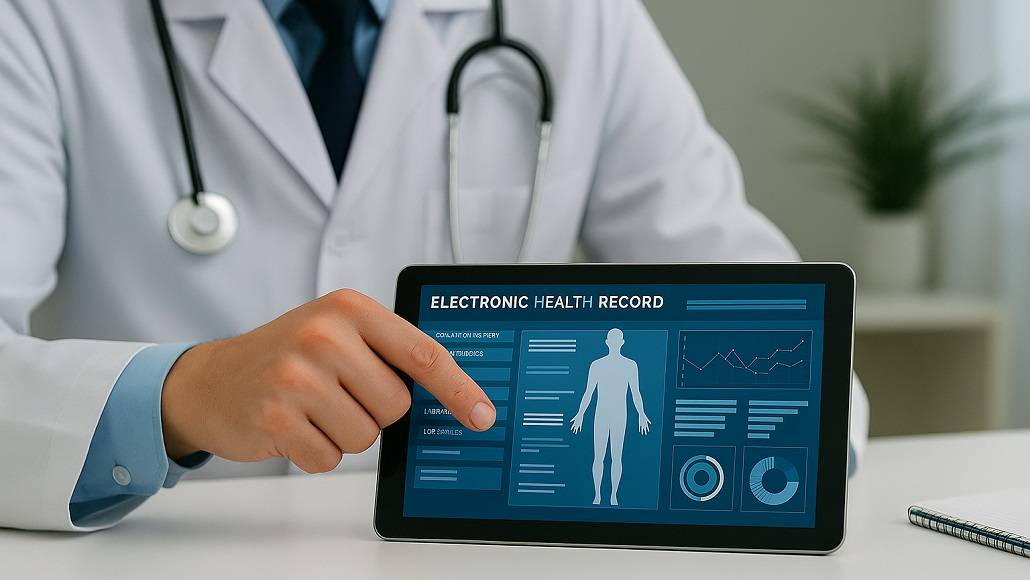EHR Health IT solutions and also telehealth platforms, patient portals, and practice management software-all are having the biggest impact when it comes to patient outcomes, stressing the importance of patient engagement technologies, as per a new AdvancedMD report that has been obtained recently.
It is well to be noted that of the 206 medical practice leaders who were surveyed for the report, 167 have already executed an EHR, 110 make use of practice management software, and 107 offer patient portal access. These technologies also happen to be among the most useful as well as impactful elements when it comes to improving patient outcomes, although telehealth also happens to be in the mix.
Apparently, while the EHR has had an overwhelmingly big effect on patient outcomes, wherein 87 respondents went on to confirm the same, and that the report authors said that telehealth happened to come in second place, with 35 respondents confirming it. Of note, respondents could not select multiple technologies as having the most impact on the outcomes.
Interestingly, this finding happens to be quite notable, considering that telehealth does not crack the top three most executed patient care technologies. But the AdvancedMD researchers went on to indicate that this finding could be indicative of what lies forward when it comes to telehealth utilization, as there are more healthcare organizations that are looking to meet consumer demands.
According to the CEO of AdvancedMD, Amanda Sharp, these survey findings reinforce what they have seen unleashed within the ambulatory care space in the last five years – telehealth not only offers flexibility as well as convenience for patients, but it is also a fundamental component when it comes to a patient experience that happens to have a significant effect on the patients’ outcomes.
Sharp went on to continue that it is indeed clear that providers are favoring care delivery models in order to meet the growing patient expectations. As the demands of patients evolve and become more driven with a consumer-centric mindset, the practice leaders who happen to invest in integrated technology solutions are going to be better positioned in order to thrive with tools that can actually deliver customized, accessible care to patients – come who they are or where they live.
Apparently, two-thirds of the respondents went on to say that patient anticipations when it comes to experiences have risen in the past year. Tapping technologies like telehealth can as well be a key response when it comes to growing consumer demand, indicated the data.
EHRs lend themselves to customized patient care
As mentioned above, EHRs happened to be regarded as among the most effective EHR health IT solutions for patient outcomes because they helped with more customized care. It is well to be noted that a total of 69% of the respondents went on to say that they use the EHR to customize the patient care plans or even offer just-in-time care capabilities. There are another 6% who said that they plan to do so in the near future.
Sharp went on to remark that the fact that an overwhelming majority when it comes to healthcare professionals they surveyed are making use of their EHRs to develop customized just-in-time treatments goes on to demonstrate how effective and efficient these solutions are.
Interestingly, for 39% of the respondents, patient health histories happened to be the most important when it comes to informing personalized care plans. It is followed by patient-reported outcomes, which are at 34%. Besides, just under a fifth, which is 17% of the respondents, said that they may use of the social determinants in terms of health data for customized care, while there were 10% who said that they make use of genomic data.
Moreover, 60% of healthcare professionals said that they make use of data analytics in order to identify trends in patient care.
Updated technology stacks are indeed key to patient outcomes
Although the respondents went on to indicate that some technologies are better as compared to others when it comes to boosting patient outcomes, the report authors went on to stress that a complete technology stack happens to be integral to practice success.
As per the survey, 70% of medical practice leaders happen to think that their present stack happens to have a positive influence on patient outcomes, with over half, which is around 53% of the respondents, saying that technology mostly goes on to improve the mental health outcomes.
Although still, there are certain areas for healthcare organisations in order to improve.
As noted above, two-thirds of the practice leaders opined that their patients are demanding more when it comes to communication, care delivery, and bill pay models.
This might as well indicate a requirement for a more digitized and self-service options. However, organizations are not completely all-in on those as yet.
For instance, 66% of the practice leaders went on to say that their patients primarily went on to book appointments by calling the clinic. There were only 16% who said that the patient made use of self-scheduling options available on the patient portal, and even fewer which was around 12%, said that their patients could send a text to their provider in order to book an appointment. Apparently, there were around 6% of the respondents who said that their parents made use of an online appointment scheduling tool.
As per the report authors, while the phone calls still happen to remain the dominant scheduling methods in most of the private practices, modern healthcare demands the providers to offer numerous communication channels in order to meet the varied patient needs, which include the likes of patient portals, self-scheduling tools, and even online platforms. Practices, apparently, that blend traditional phone availability along with digital capabilities can go on to accommodate unique patient preferences and also enhance the functional efficiency by making sure that the patient satisfaction happens to stay high for all the patients.


















